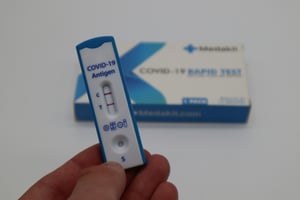In the competitive landscape of manufacturing and engineering, effective client management plays a...
Secure Patient Data Handling with Microsoft Compliance Tools: A Guide for Healthcare Clinics
In the healthcare sector, safeguarding patient data is paramount. With stringent regulations such as GDPR and the Data Protection Act 2018, clinics must ensure the privacy and security of sensitive information. Leveraging Microsoft's compliance tools can significantly enhance a clinic's ability to protect patient data and meet regulatory requirements. This article explores the importance of cybersecurity in healthcare and how technology can aid in secure data handling.
The Importance of Cybersecurity in Healthcare
Healthcare clinics manage a vast amount of sensitive information, including personal identification details, medical histories, and billing records. The consequences of a data breach in this sector can be severe, ranging from financial losses and legal penalties to damage to patient trust and clinic reputation. Cybersecurity is, therefore, not just an IT concern but a critical component of patient care.
Microsoft Compliance Tools: A Comprehensive Solution
Microsoft offers a suite of compliance tools designed to help healthcare organisations secure their data. These tools include Microsoft 365 Compliance, Azure Information Protection, and Microsoft Cloud App Security. Let's explore how a typical clinic can use these tools to ensure patient data privacy and compliance with regulatory standards.
Day-to-Day Scenarios: Implementing Microsoft Compliance Tools
Scenario 1: Protecting Patient Records with Azure Information Protection
Dr. Smith's clinic manages thousands of patient records daily. To ensure these records are secure, the clinic uses Azure Information Protection (AIP). AIP classifies and protects documents and emails by applying labels based on the sensitivity of the information.
Example: Nurse Lisa uploads a patient's medical history to the clinic's database. AIP automatically classifies the document as "Confidential" and applies encryption. Only authorised personnel can access this file, ensuring that sensitive information remains protected.
Scenario 2: Ensuring Compliance with Microsoft 365 Compliance Center
The clinic's administrative team, led by Manager John, is responsible for compliance reporting. The Microsoft 365 Compliance Center provides a centralised solution for managing compliance requirements, including data loss prevention (DLP), auditing, and regulatory reporting.
Example: John runs a regular audit using the Compliance Center to ensure all patient communications meet GDPR standards. The DLP policies detect any unauthorised sharing of sensitive information and automatically block such actions, sending alerts to John for review.
Scenario 3: Securing Cloud Applications with Microsoft Cloud App Security
With the increasing use of cloud-based applications, Dr. Smith's clinic utilises Microsoft Cloud App Security to monitor and control data transfer within these apps. This tool provides visibility into user activities and helps mitigate risks associated with data breaches.
Example: During a routine check, IT Specialist Sarah notices unusual activity involving patient data access from an unrecognised device. Cloud App Security's alert system triggers an investigation, and Sarah promptly revokes access, preventing potential data exposure.
Meeting Regulatory Requirements
Compliance with regulations such as GDPR and the Data Protection Act 2018 is crucial for healthcare clinics. Microsoft's compliance tools offer robust features to support these requirements:
- Data Encryption: Ensures that patient data is encrypted both in transit and at rest.
- Access Controls: Allows clinics to define and enforce access policies, ensuring that only authorized personnel can access sensitive information.
- Audit Trails: Provides detailed logs of data access and modifications, essential for regulatory audits and investigations.
- Data Retention Policies: Helps clinics manage data lifecycle and retention according to legal requirements.
Building Trust through Secure Data Practices
By implementing Microsoft’s compliance tools, healthcare clinics can significantly enhance their data security practices. This not only helps in meeting regulatory requirements but also builds trust with patients who rely on the clinic to protect their sensitive information.
In conclusion, leveraging Microsoft compliance tools enables healthcare clinics to manage patient data securely and efficiently. By integrating these technologies into their daily operations, clinics can focus on providing quality care while ensuring robust data protection and regulatory compliance.
For more information on how Microsoft compliance tools can benefit your clinic, contact IT Desk today. We are committed to providing comprehensive IT solutions that enhance your business efficiency and security, allowing you to focus on what matters most – your patients. Want to know more? Book a discovery call with us today!



